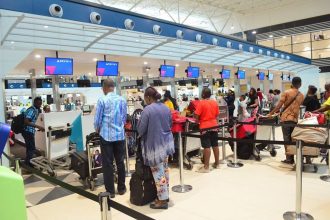Commencing with the bustling sphere of Korea’s pharmaceutical sector, we find an arena that has potential ripe for exploration. Korea’s drug registration process is an integral cornerstone, granting permission for new drug solutions to penetrate the market. This procedure is a pivotal influencer, shaping the market’s competitiveness and innovation landscape. Appreciating the complexity of drug registration in Korea can reveal lucrative opportunities to those willing to navigate its intricacies.
The Regulators of Korea’s Pharma Landscape
Korea’s drug landscape is closely guarded by the Ministry of Food and Drug Safety (MFDS). The MFDS, a guardian of public health, imposes stringent regulations to ensure the safety, effectiveness, and quality of drugs. Through the MFDS, South Korea’s drug registration process ensures that only therapeutics meeting high standards reach Korean citizens.
A robust framework guides drug registration in Korea. This blueprint, designed by the MFDS, mandates several stages from preclinical trials to post-approval obligations. Familiarizing with this blueprint is key to ensuring an efficient journey through the drug registration process in Korea.
Understanding Korea’s Drug Registration Process
In this section, we’ll decode the sequence of steps involved in Korea’s drug registration process, detailing the journey from preclinical trials to post-approval obligations.
Before the Trials
In the arena of drug development, preclinical trials are the starting block. Initial assessments are carried out in laboratories and on animals to evaluate safety and efficacy. These preliminary tests form the base for the successive clinical trial stages in the Korean drug registration process.
Proving Drug Efficacy
Clinical trials are at the heart of the drug development process. Drugs are tested on human subjects in a carefully controlled and monitored environment. The ultimate aim is to ascertain whether the drug works as intended, and if its benefits outweigh its side effects.
Submitting the Application
With the successful completion of clinical trials, pharmaceutical companies can start registering drugs. This stage involves compiling and submitting a comprehensive dossier of all trial data and other relevant documentation to the MFDS. A well-prepared application can streamline the subsequent stages of Korean drug registration.
Obligations After Approval
Post-approval obligations ensure that a drug continues to meet the regulatory standards even after entering the market. This includes mandatory reporting of adverse events, periodic re-evaluation of drug safety, and any necessary label modifications. Complying with these obligations is an ongoing part of South Korea’s drug registration process.
Domestic vs International Drug Companies
Domestic businesses often have an inherent understanding of local regulations, making drug registration a relatively straightforward process. However, keeping abreast with regulatory changes and maintaining stringent quality control is essential for success.
For international drug businesses, drug registration in Korea presents a different set of challenges. They must adapt to unique patent laws, language requirements, and documentation needs, adding layers of complexity to the registration process.
Conquering Foreign Pharma Challenges
Now, we’ll examine the special considerations foreign pharmaceutical companies must take into account when registering drugs in Korea.
- Understanding Patents – Patent laws in Korea may differ significantly from other countries. Hence, foreign companies must carefully evaluate potential patent issues to avoid legal disputes. A thorough understanding of Korean patent laws can smooth the path to a successful drug launch.
- Linguistic Hurdles – Language can be a formidable barrier for foreign companies in Korea. The MFDS requires all documentation to be translated into Korean, necessitating the use of certified translation services. Mastering this requirement is a vital step in the process.
- Documentation Demands – The MFDS requires a plethora of documents for drug registration. International drug companies must prepare clinical trial data, manufacturing information, and a lot more. Meeting these documentation demands is a significant task in the drug registration process in Korea.
Strategies to Streamline Registration
Here, we discuss how the use of regulatory consultants and strategic partnerships can streamline the registration process for foreign entities.
- Utilizing Regulatory Consultants – Engaging local Korean regulatory drug consultants can provide foreign drug companies with an insider’s perspective. Their familiarity with the drug registration process can help to preempt potential obstacles and plan efficient strategies.
- Partnerships with Korean Entities – Another approach is partnering with a Korean pharmaceutical company. Such partnerships can provide guidance and resources, simplifying the registration process for foreign businesses.
Navigating the Pitfalls
International pharmaceutical companies can stumble upon several pitfalls during the drug registration process. Common errors include inadequate trial data, incomplete applications, and misunderstanding of regulations. Foreseeing these pitfalls is key to a smoother drug registration process in Korea.
Developing mitigation strategies can help to reduce the risks inherent in drug registration. These might include conducting thorough research, establishing strong partnerships, and employing regulatory consultants. Risk mitigation is an integral part of a successful Korean drug registration process.
The Ever-Evolving Drug Registration
Over the years, Korean drug registration has evolved significantly. Regulatory updates, technological advancements, and market dynamics have reshaped the process, mandating a continuous learning approach for drug companies.
Anticipating future trends in Korean drug registration can provide a competitive edge. Given the rising emphasis on personalized medicine and digital health, regulatory frameworks are likely to evolve accordingly.
Providing Actionable Advice
Preparation is paramount in Korea’s drug registration process. Companies should familiarize themselves with the regulatory landscape, ensure thorough trial designs, and prepare comprehensive documentation to avoid delays.
Creating a plan of action and staying adaptable can significantly streamline drug registration. Involving experts, understanding the cultural context, and staying updated with regulatory changes can further ensure a smooth registration journey.
It becomes clear that understanding and navigating Korea’s drug registration process is a complex but rewarding task. It presents a chance to introduce innovative drugs to the Korean market and improve health for the Korean population. Embracing this challenge with knowledge, planning, and strategic partnerships can pave the way for a successful drug registration journey in Korea.













